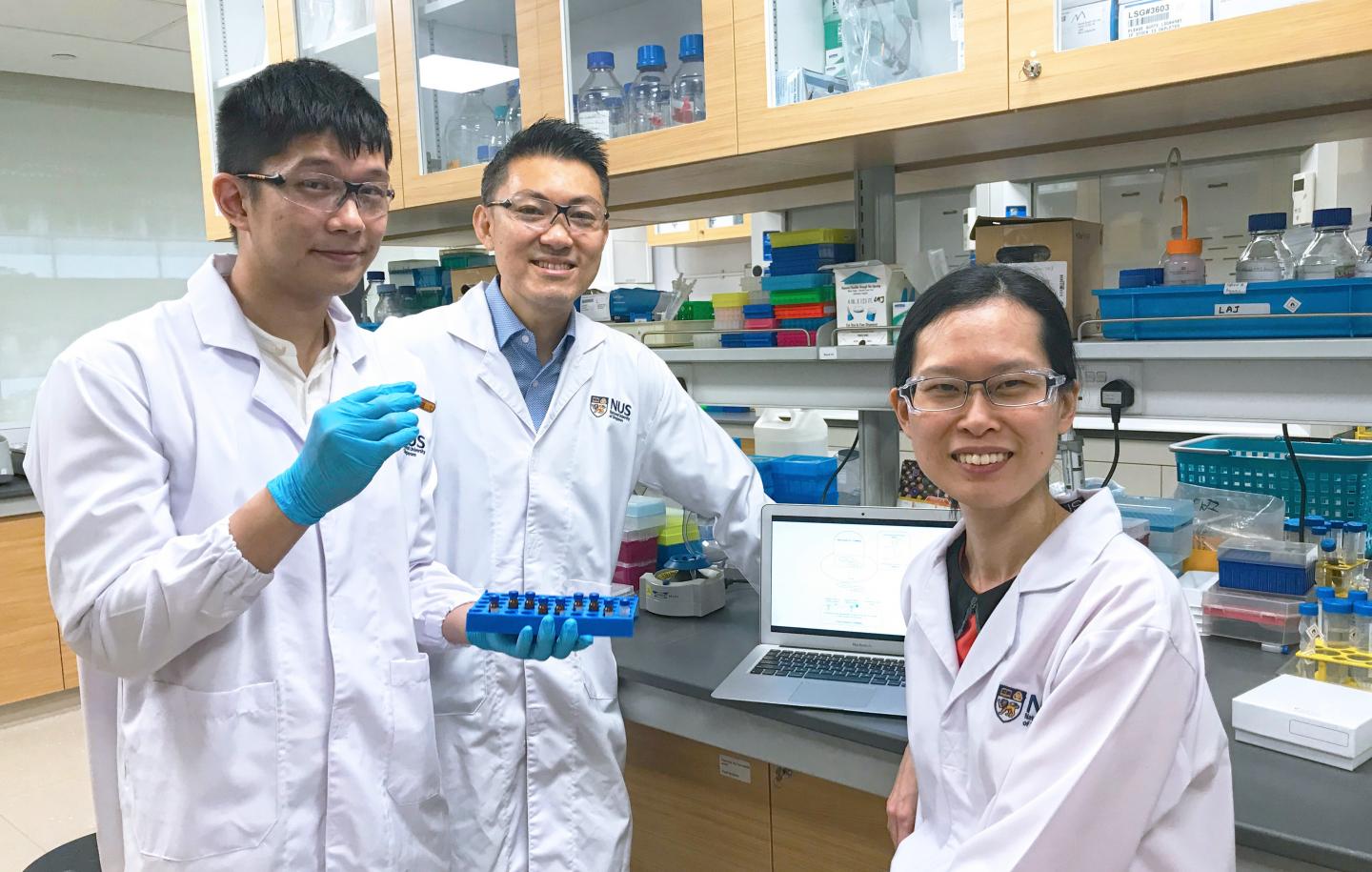
Credit: National University of Singapore
Cognitive impairment associated with cancer, also known as “chemobrain”, has gained recognition as a complication of the disease and its treatment, as it can negatively affect the daily lives of cancer patients and survivors.
Chemobrain can be subtle yet persistent, with some cancer patients reporting difficulties related to memory and attention even months after completing their treatment. This has affected patients’ functional capabilities as they try to resume their previous roles.
Given the extent of impact from chemobrain on patients, it will be useful if patients who are at higher risk of developing such symptoms could be pre-emptively identified with the use of a standardised, quantitative biomarker. The appropriate precautions could be subsequently taken to mitigate the side effects and help to improve patients’ quality of life in the long run.
With this in mind, a team led by Associate Professor Alexandre Chan from the Department of Pharmacy at the National University of Singapore’s (NUS) Faculty of Science started to investigate levels of biomarkers in relation to chemobrain, to better understand its cause. “By identifying the clinically relevant factors which pre-dispose patients to chemobrain, more appropriate interventions can be tailored accordingly to patients who are at a higher risk of developing cognitive impairment,” explained Assoc Prof Chan.
The team recently characterised plasma levels of the biomarker dehydroepiandrosterone (DHEA) and its sulfated form (DHEAS) – jointly referred to as DHEA(S) – to be biological determinants of chemobrain. DHEA(S) are neurosteroids that help to regulate brain development, but it was previously unknown whether their levels correlate with cognitive function or are associated with the onset of chemobrain. This latest work was published in Pharmacotherapy: The Journal of Human Pharmacology and Drug Therapy on 20 March 2019.
Biomarkers linked with chemobrain
The study showed that early-stage breast cancer patients with higher plasma DHEAS levels prior to chemotherapy were found to have a lower risk of developing chemobrain in the specific domains of verbal fluency and mental acuity.
The researchers recruited 81 early-stage breast cancer patients who had no prior exposure to chemotherapy or radiotherapy and were scheduled to receive chemotherapy treatment with curative intent. This was a multicentre, prospective cohort study conducted in the National Cancer Centre Singapore and KK Women’s and Children’s Hospital between 2011 and 2016.
To assess the extent of chemobrain, patients completed assessments for self-perceived and objective cognitive function before, during, and after chemotherapy. The validated questionnaire assessed patients on individual subdomains of mental acuity, concentration, memory, verbal fluency, functional interference and multitasking. Conversely, the computerised neuropsychological test performed was used to assess for processing speed, response time, memory and attention of each patient. In addition, patients also completed a series of questionnaires to assess their fatigue symptoms, anxiety symptoms and health-related quality of life.
Plasma samples collected prior to chemotherapy were quantified for DHEA(S) levels. Mr Toh Yi Long, a doctoral student working with Assoc Prof Chan, and the first author of the study, said, “Our findings suggest that patients with higher prechemotherapy DHEAS levels had lower odds of developing self-perceived cognitive impairment. However, future studies are required to further investigate the effect of DHEA(S) on specific cognitive domains and to validate our findings in independent cohorts.”
Better treatment of chemobrain in future
Assoc Prof Chan’s team is now exploring new research frontiers and looking at developing potential therapeutic interventions. These interventions may provide viable options to mitigate post-treatment complications (not limited to chemobrain) that cancer patients are experiencing, with the overall goal to improve quality of life and to help restore normalcy in cancer survivors.
###
Media Contact
Carolyn Fong
[email protected]
Original Source
https:/
Related Journal Article
http://dx.




